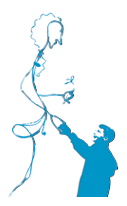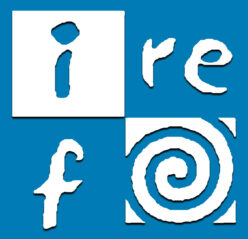GrupIREF
Innovation and Research on Teaching Philosophy Group
GrupIREF is a non-profit associationsettled in Catalonia that promotes the Filosofia 3/18 curriculum. These curricula are part of the educational moviment Philosophy for Children, incorporating supplementary materials, creating new ones and paying special attention to the arts as a form of knowledge.
![]()
It is recognized by the Department of Education of Catalonia, thus:
– it can organize teacher training courses;
– it can provide training for teacher trainers;
– it can endorse research projects.
![]()
GrupIREF also collaborates with the University of Girona, MNAC (National Museum of Art of Catalonia), Museum of Art and History of Sabadell, La Caixa Foundation, etc.

